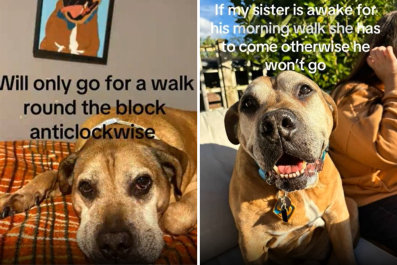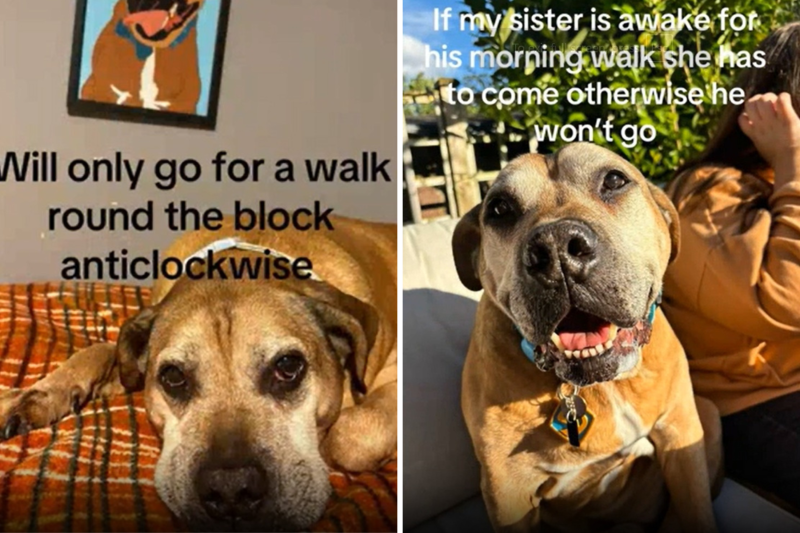
Internet Can't Cope With Habits Senior Dog Has Started in Old Age
In many ways, dogs are like human. They have personalities and can even form habits, just like American Staffordshire Terrier mix, Buddy, who has developed a number of quirky habits since he turned 10.
Now, three years later, his owner Abi Raffles, 20, has shared them on TikTok on an account dedicated to him, @buddythestaffiecross.
She told Newsweek, "My favorite one is probably the way I have to sit in a certain spot and watch him when he eats."

Raffles, a dog swim teacher from Lincoln, England, shared a slideshow of her senior dog with text layered over each image, detailing his unique habits as he's aged:
- He will only go for a walk around the block counterclockwise.
- He will only walk somewhere new if he has gone there by car first.
- If Raffles' sister is awake in the morning, she has to join the walk, or he will refuse to go.
- He will not eat his food unless someone is sitting down and watching him.
The clip captioned: "Buddy may be quirky for his old age but he is lovely, funny and gentle," has 36,200 views, at the time of writing.
One TikTok user said: "All sounds perfectly reasonable to me."
"Give this old man exactly what he wants....he deserves it," said another and a third commenter agreed: "Old boys like this are entitled to these demands."
A fourth user said: "I love when dogs have weird quirks like this. My senior dog will only eat his food if we're standing in specific parts of the kitchen and watching him."
Behavioral changes in older dogs are common, according to the Dog Aging Project, an open science project with a community of dogs, owners, veterinarians, researchers and volunteers.
Their website states that owners often worry that their furry friend has developed a canine cognitive dysfunction syndrome (CDS) or canine dementia. But in many instances, there are other possible causes for many of these behaviors such as:
- Pain from arthritis
- Dental disease
- Neurological issues
- Metabolic conditions
- Sensory decline
Senior dogs may also develop anxiety, often triggered by environmental changes, as they tend to be less adaptable to routine disruptions than younger dogs.
It is important for owners to pay attention to their pets' well-being by attending regular checkups and blood work is recommended for early detection and effective treatment of underlying health issues.
Owners are also encouraged to maintain a consistent, low-stress routine, which can help manage and even slow behavioral changes.
Do you have funny and adorable videos or pictures of your pet you want to share? We want to see the best ones! Send them in to life@newsweek.com and they could appear on our site.
